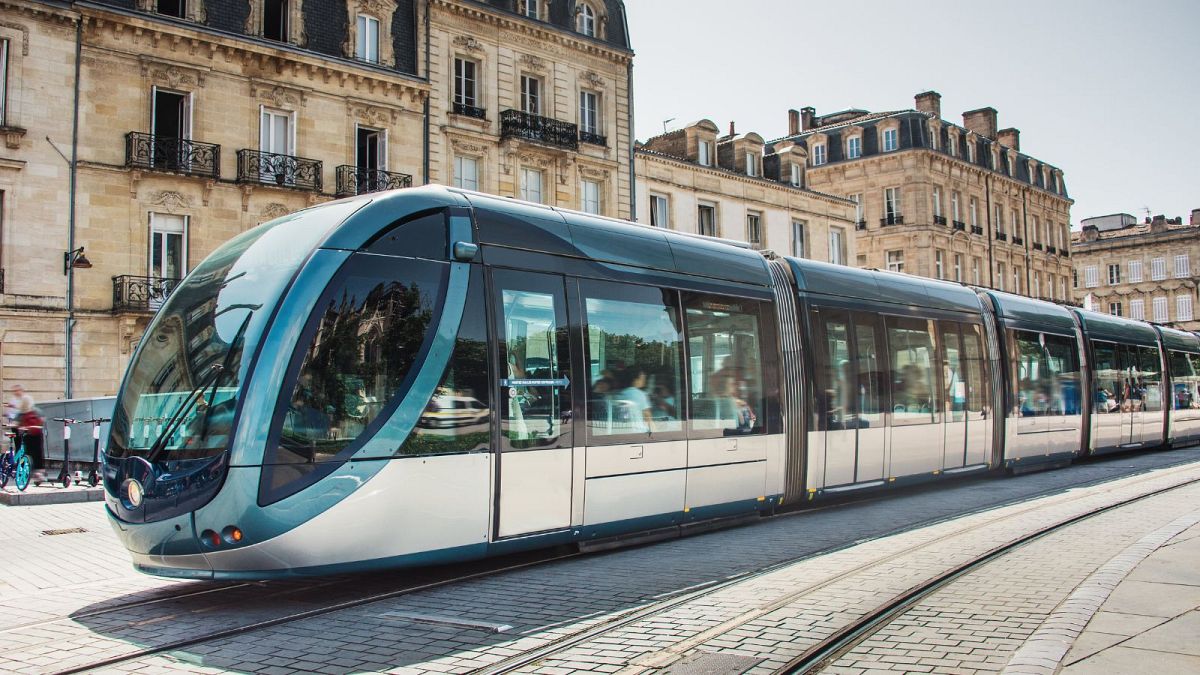With the climate crisis gaining pace and the benefits of sustainable forms of transport clear, some European countries are making employers pick up employees’ public transport bills.
Transport remains the thorn in the side of Europe’s environmental ambitions.
The sector makes up a quarter of the EU’s emissions yet is one of the only to have seen increases in emissions in recent years.
With ambitious climate targets in place, more needs to be done to change how we move people and goods (or at least how transport is fuelled).
So what if there was a simple step that could encourage a move away from private cars and cost the taxpayer next to nothing?
Well that’s exactly what several European countries have put in place in recent years.
In a bid to increase the attractiveness of sustainable transport and lighten the financial load of citizens, some European governments have mandated that employers must pay for the cost of public transport.
This typically works by taking out your monthly or annual travel subscription as normal and then handing your receipt to your company who will refund some or all of the amount.
But there are different rules across European countries, so let’s take a look at some of the best ones on offer across the continent.
Majority of public transport costs covered in Belgium and France
Belgium isn’t only the king of fries and beer, it also has a very generous public transport reimbursement scheme.
There is a compulsory minimum of 75 per cent covered by the employer. In a city like Brussels where a monthly pass costs €50 it means you’d only have to fork out €12.50 per month to have access to all metros, trams and buses. Cheers to that!
Just across the border Belgium’s neighbour France also has a national mandatory rule on reimbursements. While still not to be sniffed at, it's not quite as good as the Belgians’ with French employees entitled to a minimum of 50 per cent of their public transport costs.
Moving into Central Europe, Slovenian employers must cover the costs of employees’ journeys to and from work. This is done in line with collective agreements in work places and usually takes the form of paying for public transport tickets or a certain amount per kilometre for people commuting by car.
Where in Europe has free public transport?
In Austria public transport is now free for all employees working for the City of Vienna. Non-municipal employees in the country may not have it quite as good but they are still entitled to reimbursements for their home to work travel costs in the form of a tax allowance up to €463 regardless of the form of transport used.
Of course there are some places that go a step above any of this. Luxembourg has had free public transport with no caveats since 2020. Major cities like Montpellier in France and Tallinn in Estonia are also on board.
On the flip side there are also many countries where there is no legal obligation to cover the costs of transport but many companies, particularly bigger ones in major cities, still do. This is the case in places like Italy, Poland, Germany and the Netherlands.
What is the benefit for employers?
It’s not just the environment that benefits by making public transport cheaper for workers, it can also be a good way to attract and retain staff. As office culture has waned in recent years, giving workers’ incentives can encourage them to come to the office more often, too.
It also can incentivise more workers to take public transport and reduce the amount of parking spaces needed by a company which can save money.
Some European countries offer ‘climate tickets’ which allow unlimited travel across the country using regional trains as well as on cities’ public transport. This can reduce the amount of travel expenses that need to be handled for work trips.
Less private car use can also help reduce air pollution and make cities healthier and safer for residents.















